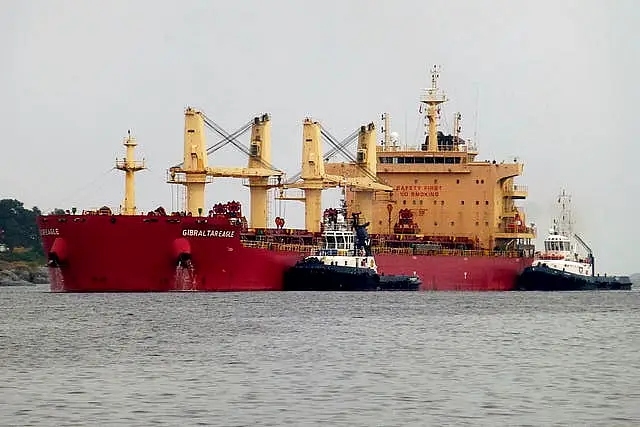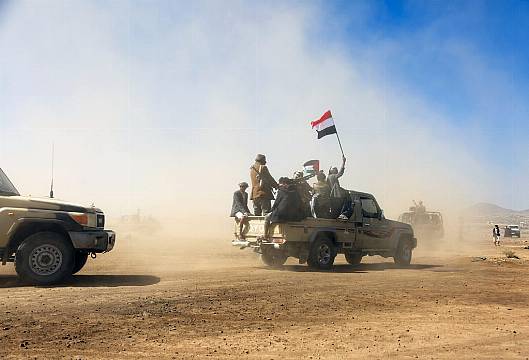The US has put Yemen’s Houthis rebels back on its list of designated global terrorists, piling financial sanctions on top of military strikes in the Biden administration’s latest attempt to stop the militants’ attacks on global shipping.
Officials said they would design the financial penalties to minimise harm to Yemen’s 32 million people, who are among the world’s poorest and hungriest after years of war between the Iran-backed Houthis and a Saudi-led coalition.
But aid officials expressed concern, with Oxfam America associate director Scott Paul saying the decision will only add “another level of uncertainty and threat for Yemenis still caught in one of the world’s largest humanitarian crises”.
The sanctions that come with the formal designation are meant to sever violent extremist groups from their sources of financing.

Donald Trump’s administration designated the Houthis as global terrorists and a foreign terrorist organisation in one of his last acts in office. President Joe Biden reversed course early on, at the time citing the humanitarian threat the sanctions posed to ordinary Yemenis.
Houthi spokesman Mohammed Abdul-Salam said the US terrorist label would not deter the group, posting on social media:. “Instead, we consider it a badge of honour for Yemen for its support of Palestinian resistance in Gaza.”
Military strikes by the US and the UK against Houthi targets in Yemen have failed to stop weeks of drone, rocket and missile strikes by Houthi forces on commercial shipping passing through the Red Sea, which borders Yemen.
The Houthis are one in a network of Iran and Hamas-allied militant groups around the Middle East that have escalated attacks on Israel, the US and others since Israel’s military offensive in Gaza, in response to Hamas’s October 7 attacks in Israel.
The Houthis were originally a clan-based rebel movement. They seized Yemen’s capital in 2014 and withstood a years-long invasion led by Saudi Arabia aimed at driving them from power.
Two-thirds of Yemen’s people live in territory now controlled by the Houthis.
Critics say the additional broad US sanctions may have little effect on the Houthis, a defiant and relatively isolated group with few known assets in the US to be threatened.
There is also concern that designating the Houthis as terrorists may complicate international attempts to broker a peace deal in the now-subsided war with Saudi Arabia.
War and chronic misgovernment have left 24 million Yemenis at risk of hunger and disease, and roughly 14 million are in acute need of humanitarian assistance, the United Nations says.

Aid groups during the height of Yemen’s war issued repeated warnings that millions of Yemenis were on the brink of famine.
Aid organisations worry that just the fear of US regulations could be enough to scare away shippers, banks and others in the commercial supply chain that Yemenis depend on for survival. Yemen imports 90% of its food.
US officials told reporters before the State Department’s announcement on Wednesday that the sanctions would exempt commercial shipments of food, medicine and fuel, and humanitarian assistance.
Washington will wait 30 days to put the sanctions into effect, officials said, giving shipping companies, banks, insurers and others time to prepare.
The administration is not yet reimposing the more severe designation of foreign terrorist organisation on the Houthis. That would have barred Americans, along with people and organisations subject to US jurisdiction, from providing “material support” to the Houthis.
Aid groups said that step could have the effect of criminalising ordinary trade and assistance to Yemenis.
The US will re-evaluate the designation if the Houthis comply, officials said.







